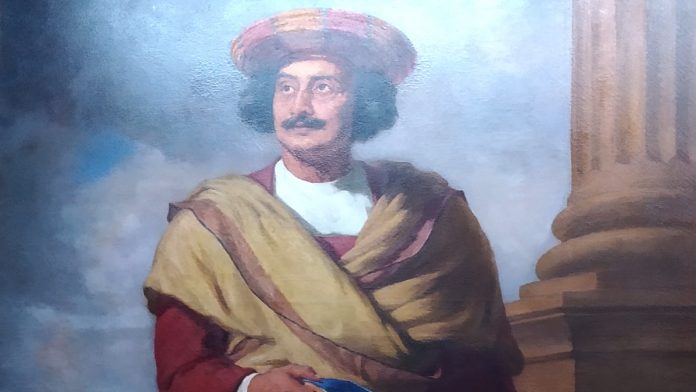W.B.C.S. Examination Notes On – Reform Movements – Ram Mohan Roy – Indian History Notes.
Raja Ram Mohan Roy (1772 – 1833)
- Born in Radhanagar, Hooghly District, Bengal Presidency in May 1772 into a Bengali Hindu family.Continue Reading W.B.C.S. Examination Notes On – Reform Movements – Ram Mohan Roy – Indian History Notes.
- He is known as the ‘Father of Modern India’ or ‘Father of the Bengal Renaissance’.
- He was a religious and social reformer.
- Widely known for his role in the abolition of the practice of Sati.
- He was a scholar and knew Sanskrit, Persian, Hindi, Bengali, English and Arabic.
- He fought against the perceived ills of Hindu society at that time.
- Propagated Western education among Indians.
- Formed the Brahmo Samaj in 1828.
- Worked for the East India Company as a clerk.
- He died in September 1833 in Bristol, England.
Raja Ram Mohan Roy Contribution
- He was opposed to Sati, polygamy, child marriage, idolatry, the caste system, and propagated widow remarriage.
- He stressed on rationalism and modern scientific approach.
- He believed in social equality of all human beings.
- He started many schools to educate Indians in Western scientific education in English.
- He was against the perceived polytheism of Hinduism. He advocated monotheism as given in the scriptures.
- He studied Christianity and Islam as well.
- He translated the Vedas and five of the Upanishads into Bengali.
- He started the Sambad Kaumudi, a Bengali weekly newspaper which regularly denounced Sati as barbaric and against the tenets of Hinduism.
- In 1828, he founded the Brahmo Sabha which was later renamed Brahmo Samaj. He had also founded the Atmiya Sabha.
- Brahmo Samaj’s chief aim was worship of the eternal god. It was against priesthood, rituals and sacrifices. It focused on prayers, meditation and reading of the scriptures.
- It was the first intellectual reform movement in modern India where social evils then practiced where condemned and efforts made to remove them from society.
- It led to the emergence of rationalism and enlightenment in India which indirectly contributed to the nationalist movement.
- The Brahmo Samaj believed in the unity of all religions.
- He worked for the improvement in the position of women. He advocated widow remarriage and education of women.
- His efforts led to the abolition of Sati in 1829 by Lord William Bentinck, the then Governor-General of India.
- He was a true humanist and democrat.
- He also spoke against the unjust policies of the British government especially the restrictions on press freedom.
- Raja Ram Mohan Roy and his Brahmo Samaj played a vital role in awakening Indian society to the pressing issues plaguing society at that time and also was the forerunner of all social, religious and political movements that happened in the country since.
- He visited England as an ambassador of the Mughal king Akbar Shah II (father of Bahadur Shah) where he died of a disease. He was awarded the title ‘Raja’ by Akbar II.
Please subscribe here to get all future updates on this post/page/category/website


 Toll Free 1800 572 9282
Toll Free 1800 572 9282  mailus@wbcsmadeeasy.in
mailus@wbcsmadeeasy.in



















































































































